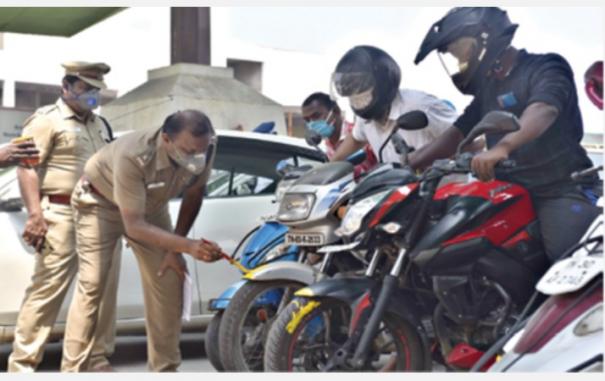India well-equipped: Vardhan
Minister says country is unlikely to face an ‘unmanageable crisis’ from COVID-19
11/04/2020, SPECIAL CORRESPONDENT, ,NEW DELHI

Ready for challenge: A municipal worker spraying disinfectant in a makeshift hospital in Mumbai. Aadesh ChoudhariThe Hindu
India is unlikely to face an “unmanageable crisis” from COVID-19, Health Minister Harsh Vardhan said at an online conference organised by the India Foundation. He was addressing international delegates, according to information on his official Twitter handle.
Were matters to deteriorate, India had enough infrastructure to tide over the crisis, he said.
“We have 500 dedicated COVID-19 hospitals, 200,000 beds across hospitals and 50,000 ICU beds. We have ordered everything in plenty. In the last two months, we have ensured adequate testing facilities. We started with one lab and today we have over 200. Over 150 are public labs.”
Multiple strategies
As on Friday, the Ministry has reported 6,761 cases and 206 deaths. Dr. Vardhan said India had multiple strategies in place to contain the pandemic. For more than 15 cases in a district, we have a ‘large outbreak’ strategy and for less than 15, a cluster containment strategy, he said.
According to guidelines released by the ICMR this week, both strategies involve active surveillance for cases and contacts in an identified geographic zone, expanding testing to all at risk in these places and improving hospital accommodation capacity.
“In another way, COVID-19 has come as a blessing in disguise” he remarked. Until now, India had largely relied on importing Personal Protective Equipment for health care workers. However, with rising local demand and shortages, the government had, via the Ministry of Textiles, authorised 39 manufacturers to make such equipment locally.
“From next week, 10 lakh PPEs are expected, as well as 48,000 additional ventilators,” he said.
Hails health officials
He also addressed a conference with health officials from various States and “congratulated them” for keeping the situation under control, according to a statement from the Press Information Bureau. He exhorted all States to establish at least one dedicated COVID-19 hospital in every district.
States ought not to be neglecting the treatment/medical needs of pregnant women, dialysis patients and those suffering from thalassemia and must improve access to mobile blood donation.
Everyone should download the Arogya app as it would help assess the risk of infection, the press statement added.














